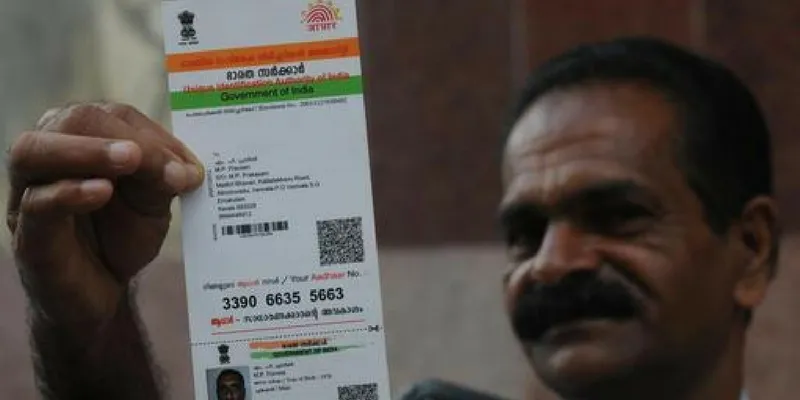World Bank thinks Aadhaar system in India is very effective and should be adopted by all nations
Paul Romer, the Chief Economist of the World Bank, thinks that the Aadhaar card system in India is very effective and fruitful, and has recommended that all the countries in the world adopt it. According to a report by Bloomberg, he said, "The system in India is the most sophisticated that I’ve seen. It is the basis for all kinds of connections that involve things like financial transactions. It could be good for the world if this became widely adopted."

The World Bank in its World Development Report for 2016 said, "A digital identification system such as India’s Aadhaar, by overcoming complex information problems, helps willing governments promote the inclusion of disadvantaged groups."
Nandan Nilekani, the spearhead of this system, said that a lot of countries in the world, like Tanzania, Afghanistan, Bangladesh, Russia, Morocco, Algeria, and Tunisia, have expressed interest in the system. The United States' intelligence authorities have, however, resolved against adding a biometric system to the existing Social Security Number cards. "They’re all keen to see how they can replicate this in their countries. This is a great example of how governments can build the most modern digital public infrastructure, and make it available as a public good to everybody," Nilekani said, according to Bloomberg.
The Aadhaar system in India is now accessible to more than 1.1 billion people in the country, and the numbers have been increasing considerably thanks to the Indian government's rules to use this system for access to most benefits and services. The catch, however, is that the Supreme Court of India suggested that the Aadhaar system need not be mandatory for government services. Adding more weight to this, in October 2015, the apex court restricted the use of Aadhaar to only six schemes, on a voluntary basis.
The central government, however, had passed the Aadhaar Act (Targeted Delivery of Financial and Other Subsidies, Benefits, and Services) in March 2016, overruling the court’s order. This special act enables the government to ask for proof of Aadhaar for any subsidy, benefit, or service. Six months later, the court passed another directive, standing firm on its decision that Aadhaar can't be mandatory for government services and schemes. Despite the wide criticism that this system might to lead to potential information leaks and the loopholes in it, the government has been successful in implementing it since 2009.
Do you have an interesting story to share? Please write to us at [email protected]. To stay updated with more positive news, please connect with us on Facebook and Twitter.






